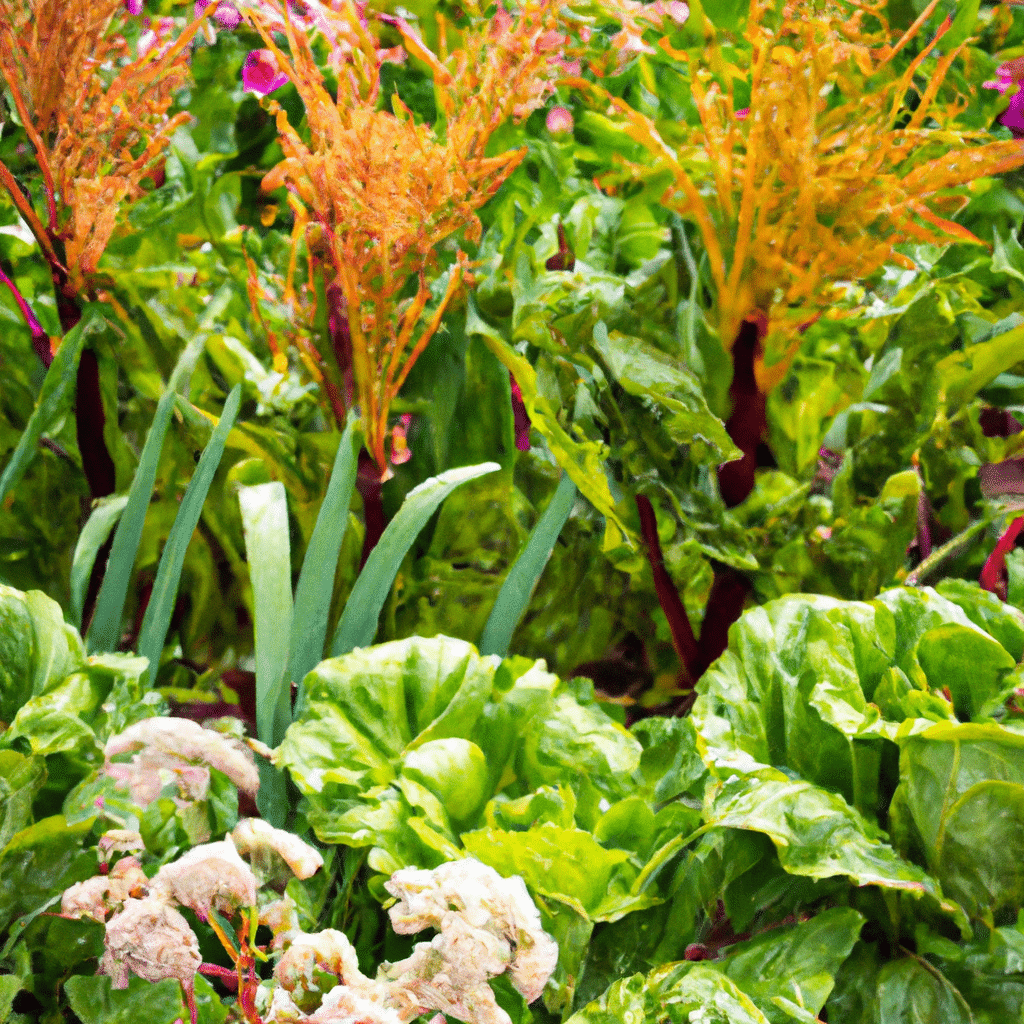Companion planting is an ancient gardening practice that involves strategically growing different plants together to enhance their growth, health, and productivity. By understanding the principles of companion planting, you can unlock the secrets to creating a thriving garden with bountiful yields. In this comprehensive guide, we will delve into the world of companion planting, exploring the benefits, techniques, and perfect plant pairings that can help you achieve maximum growth in your garden.

The Benefits of Companion Planting
Companion planting offers a range of benefits that can transform your garden into a harmonious ecosystem. Here are some key advantages:
- Pest Control: Certain plants have natural pest-repellent properties or attract beneficial insects that prey on garden pests. By strategically planting these companions, you can reduce the need for harmful pesticides and protect your plants naturally.
- Nutrient Enhancement: Some plants have the ability to fix essential nutrients in the soil, benefiting neighboring plants with their nutrient-rich presence. By pairing compatible plants, you can create a nutrient cycle that fosters healthy growth.
- Weed Suppression: Certain plant combinations can effectively suppress the growth of weeds by shading the soil, preventing weed seeds from germinating, or releasing chemicals that inhibit weed growth. This can save you time and effort in weed control.
- Enhanced Pollination: Some plants attract pollinators such as bees and butterflies, which are essential for fruit and vegetable production. By incorporating these pollinator-friendly plants, you can increase pollination rates and boost overall yields.
- Space Optimization: Companion planting allows you to maximize the use of space in your garden. By interplanting compatible crops, you can create a dense and diverse planting arrangement, utilizing every inch of your garden efficiently.
The Principles of Companion Planting
To successfully practice companion planting, it is important to understand the principles that govern these plant pairings. Here are some key guidelines to keep in mind:
1. Compatibility
Not all plants make good companions. Some plants may compete for resources or release chemicals that inhibit the growth of their neighbors. It is crucial to research and identify plants that are compatible with each other to ensure harmonious growth.
2. Plant Diversity
A diverse garden is a healthy garden. By incorporating a variety of plants, you can create a balanced ecosystem that supports beneficial insects, improves soil health, and minimizes the risk of pest and disease outbreaks.
3. Succession Planting
Succession planting involves planting crops in a sequence to ensure a continuous harvest throughout the growing season. By carefully planning your plantings and considering their compatibility, you can optimize your garden’s productivity.
4. Crop Rotation
Crop rotation is a practice that involves changing the location of crops each year to prevent the buildup of pests and diseases. By following a crop rotation schedule and incorporating companion planting principles, you can further enhance the health and productivity of your garden.
Perfect Plant Pairings for Maximum Growth
Now that we have explored the benefits and principles of companion planting, let’s dive into some specific plant pairings that can help you achieve maximum growth in your garden:
1. Tomatoes and Basil
Tomatoes and basil are a classic example of companion planting. Basil repels common tomato pests such as aphids and tomato hornworms, while tomatoes enhance the flavor of basil. Plant basil around your tomato plants to deter pests and enjoy the culinary benefits of this pairing.
2. Carrots and Onions
Carrots and onions make great companions, as they have different root depths and growth habits. Onions deter carrot flies, while carrots help suppress weeds around onion plants. Interplanting these two crops can lead to healthier plants and better yields.
3. Cucumbers and Radishes
Cucumbers and radishes complement each other well. Radishes repel cucumber beetles and can act as a trap crop, drawing pests away from your cucumber plants. Additionally, radishes grow quickly and help break up compacted soil, creating a favorable environment for cucumbers.
4. Beans and Corn
Beans and corn have a mutually beneficial relationship known as “Three Sisters” planting. Corn provides support for climbing beans, while beans fix nitrogen in the soil, benefiting corn and other neighboring plants. This traditional Native American planting technique can greatly improve soil fertility and yield.
5. Marigolds and Vegetables
Marigolds are excellent companions for a wide range of vegetables. They repel nematodes, aphids, and other pests, while attracting beneficial insects. Plant marigolds throughout your vegetable garden to provide natural pest control and add a vibrant touch of color.
6. Spinach and Strawberries
Spinach and strawberries make a great pairing, as spinach provides shade and weed suppression for strawberry plants. The dense foliage of spinach helps protect the shallow roots of strawberries and prevents weed growth, ensuring healthier strawberry plants and larger yields.
7. Peppers and Oregano
Peppers and oregano thrive together, as oregano repels pests such as aphids and spider mites that commonly affect peppers. Plant oregano near your pepper plants to deter pests and enhance the flavor of your peppers.
Conclusion
Companion planting is a powerful technique that can transform your garden into a thriving ecosystem. By understanding the benefits, principles, and perfect plant pairings, you can unlock the mysteries of companion planting and achieve maximum growth in your garden. Experiment with different combinations, observe the results, and adapt your plantings to create a harmonious and productive garden that surpasses expectations. Happy gardening!



